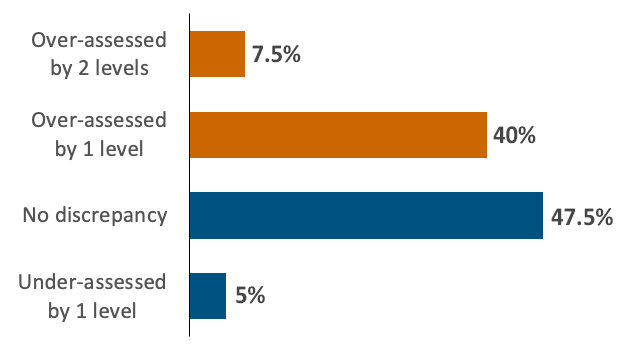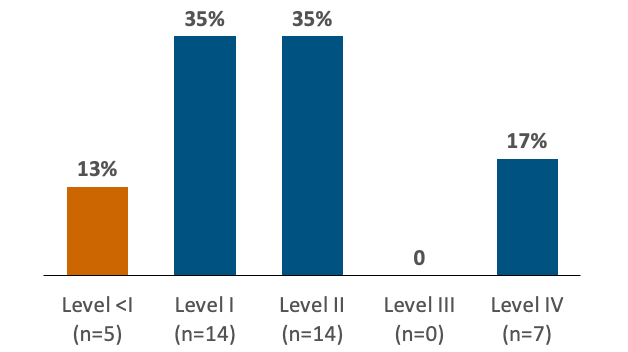Levels of maternal care
Levels of Maternal Care is a strategy to reduce severe maternal morbidity and mortality by ensuring that high-risk patients receive care at hospitals that can meet their anticipated needs. Each level of maternal care is based on a hospital’s physical facilities, capacities, and medical and support personnel. Higher levels of care do not indicate higher quality of care. Rather, the choice of care level should align with the risk for complications associated with a pregnancy or birth.
Goals of this initiative
Hospitals are aware of what risk factors they have the capacity to safely take care of, and they have the resources to safely transfer patients when needed.
Patients have the information and resources they need to receive care at facilities that are risk-appropriate.
The state has the information it needs to support regional planning to promote access to risk-appropriate levels of maternal care.
Measuring levels of care in Massachusetts
In 2021, all 40 birthing hospitals in Massachusetts voluntarily completed a survey known as the Levels of Care Assessment Tool (LOCATe). It was developed by the CDC and has been used by 23 other states to determine each hospitals’ capacity to manage the spectrum of low- to high-risk births. Massachusetts also added questions to the survey to capture information on disparities in care and opportunities to increase health equity.

Almost half of hospitals self-assessed at a level higher than their LOCATe-assessed level of care.

The majority of hospitals were assessed at level I or II. 13% of hospitals were LOCATe-assessed below level I with no hospital at level III.
Next steps
As a part of this work, the Betsy Lehman Center, in collaboration with the Department of Public Health (DPH) and the Perinatal-Neonatal Quality Improvement Network of Massachusetts (PNQIN), convened a Levels of Maternal Care Implementation Committee. The committee includes birthing hospitals, payers, community organizations, community health centers, transport service providers, and people with lived experience.
In November of 2023, the governor accepted recommendations from the committee that call for Massachusetts to take a regulatory approach to aligning levels of care with needs of families in the state, better educate the public about levels of care and help hospitals achieve their desired levels of care. The Betsy Lehman Center, DPH, PNQIN and this committee are currently developing proposed action steps to affect these changes.